‘It’s like Bashir is still here’: Inside war-ravaged Darfur where deadly violence is killing the revolution
A Nation on the Edge: Despite an uprising which ousted Omar Bashir and a ceasefire in place, little has changed in Sudan’s troubled western region
The men in black masks and khaki uniforms arrived in the middle of the night. They set fire to homes with people still inside them.
They separated girls from their parents and raped them. They shot dead an old man who tried to defend his daughters.
With a disarming absence of emotion, Fatima Nour, 30, recalls the deadly attack on her village in North Darfur, as she sits beside a reed hut in Zamzam displacement camp.
She barely blinks when describing the murder of her brother, who was killed protecting the family’s livestock in a 2014 raid by government-backed forces.
Five years on, despite Sudan’s revolution – which ousted the country’s brutal president, Omar Bashir – and a ceasefire, Fatima is concerned that the deadly violence has not stopped.
“Just a few days ago we heard of more people being attacked and displaced in villages in the eastern Jebel Marra,” says the mother-of-seven.
“They burn houses, they rape the girls, they steal livestock. They are still expelling people from their farms. We have no weapons to protect ourselves.”
The Independent visited one village where inhabitants said they were preparing themselves for a raid that they understood to be imminent.
And so across the camps and war-wracked areas of North Darfur, displaced civilians repeat similar stories to Fatima’s, saying they have little hope in – or even knowledge of – the uprising which shook Sudan this year, and reverberated around the world.
“What revolution, what change are you talking about?” Fatima asks, with a shrug.
“We still lack food and medicine, we still cannot go home, our lands have still been seized. The fighting still continues.”
Part of the issue, civilians say, is the ongoing presence of the Rapid Support Forces (RSF) and affiliated predominantly Arab clans, which they blame for the violence.
The paramilitary group – formed in 2013 from the remnants of the feared Janjaweed militias – has been accused by rights groups of committing war crimes in Darfur on the orders of Bashir, who is wanted by the International Criminal Court for genocide.
However, now that Bashir is languishing behind bars – post the uprising – the RSF has been absorbed into Sudan’s armed forces and is part of a power-sharing deal between the military and civilians.
The RSF is just the “latest in these genealogies of proxy government militias”, Suliman Barlo, the Enough Project’s Sudan expert, explains.
“All were armed trained and equipped by the [Bashir] government. Literally tens of thousands of Toyota land cruisers were imported into Sudan for this. We are not talking about light arms, we are talking about RPGs, light artillery, mounted artillery on trucks. Darfur is still awash with weapons,” he adds.
The RSF’s leader Lieutenant General Mohamed Hamdan Dagalo, known as Hemedti, is now the deputy head of Sudan’s 11-person ruling Sovereign Council and is considered one of the most powerful and richest men in the country.
In a rare interview with The Independent, he vehemently denied that the RSF were behind atrocities against civilians, blaming the violence in Darfur on intertribal clashes and rogue militias.
He described his forces as the “protector of the revolution” and “guardians of Darfur”, pointing to a disarmament campaign that they run in the region.
A stunned Fatima and a chorus of displaced women sitting on the dirt floor beside her, shake their heads when they hear this.
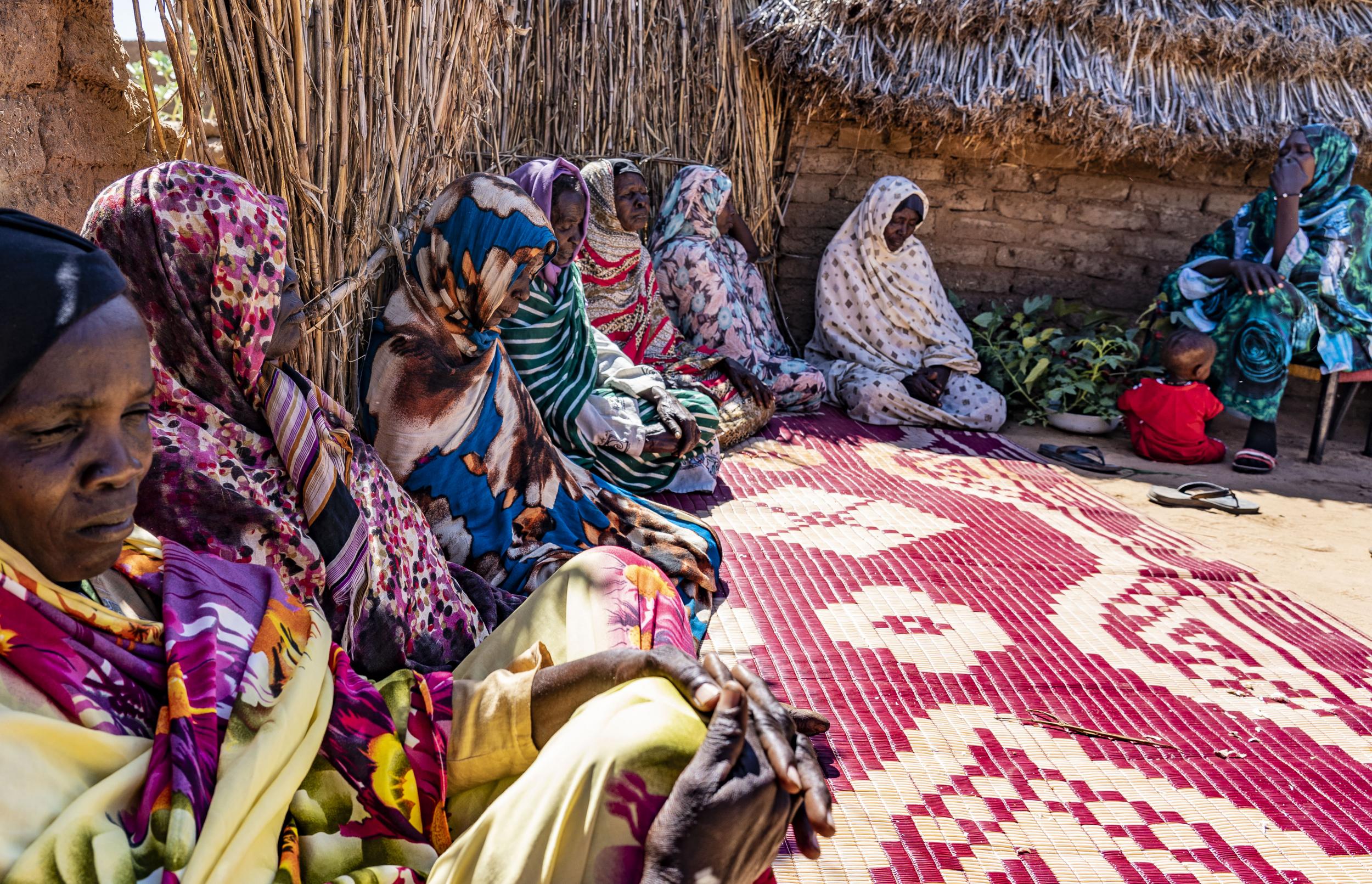
“It is crazy that Hemedti is in the ruling council, that he calls himself the protector of the revolution,” she says.
“He is the one who killed us. How can that be? What kind of joke is this?”
Darfur, located on Sudan’s most western edge, has witnessed unspeakable violence since a civil war erupted in 2003 when rebel groups took up arms against Bashir’s government that they accused of oppressing Sudan’s non-Arab population.
Bashir furnished loyal, mostly Arab tribes and militias with weapons, forming a sprawling proxy army called the Janjaweed. This began a campaign of ethnic cleansing of the predominantly African origin communities from which the rebels heralded.
Rights groups said that Bashir used these forces to launch ground, air and even chemical-weapon attacks on civilians, prompting wave after wave of displacement.
No one knows exactly how many people have been killed since 2003, but estimates range from 300,000 to half a million dead.
The conflict has also displaced 2 million people from Darfur, according to the United Nations (UN).
The new government announced a ceasefire with the rebels and launched peace talks – post-revolution in 2019 – allowing access to some of the regions for the first time in over a decade.
The African Union-UN Hybrid Operation in Darfur (Unamid) meanwhile, has begun pulling out of their bases in a downscale of its operations. Its officials told with The Independent that situation in Darfur “is going to change” and was “on the right track”.
But despite claims of progress, over the summer Amnesty published disturbing new evidence showing Sudanese government forces – including the RSF and its allied militias – continuing to commit possible war crimes and other serious human rights violations against civilians in Darfur.
They tracked the destruction of dozens of villages in the Jebel Marra region, documenting unlawful killings and sexual violence.
Local media has also logged a steady track of vicious attacks and killings although no overall death toll has been officially announced.
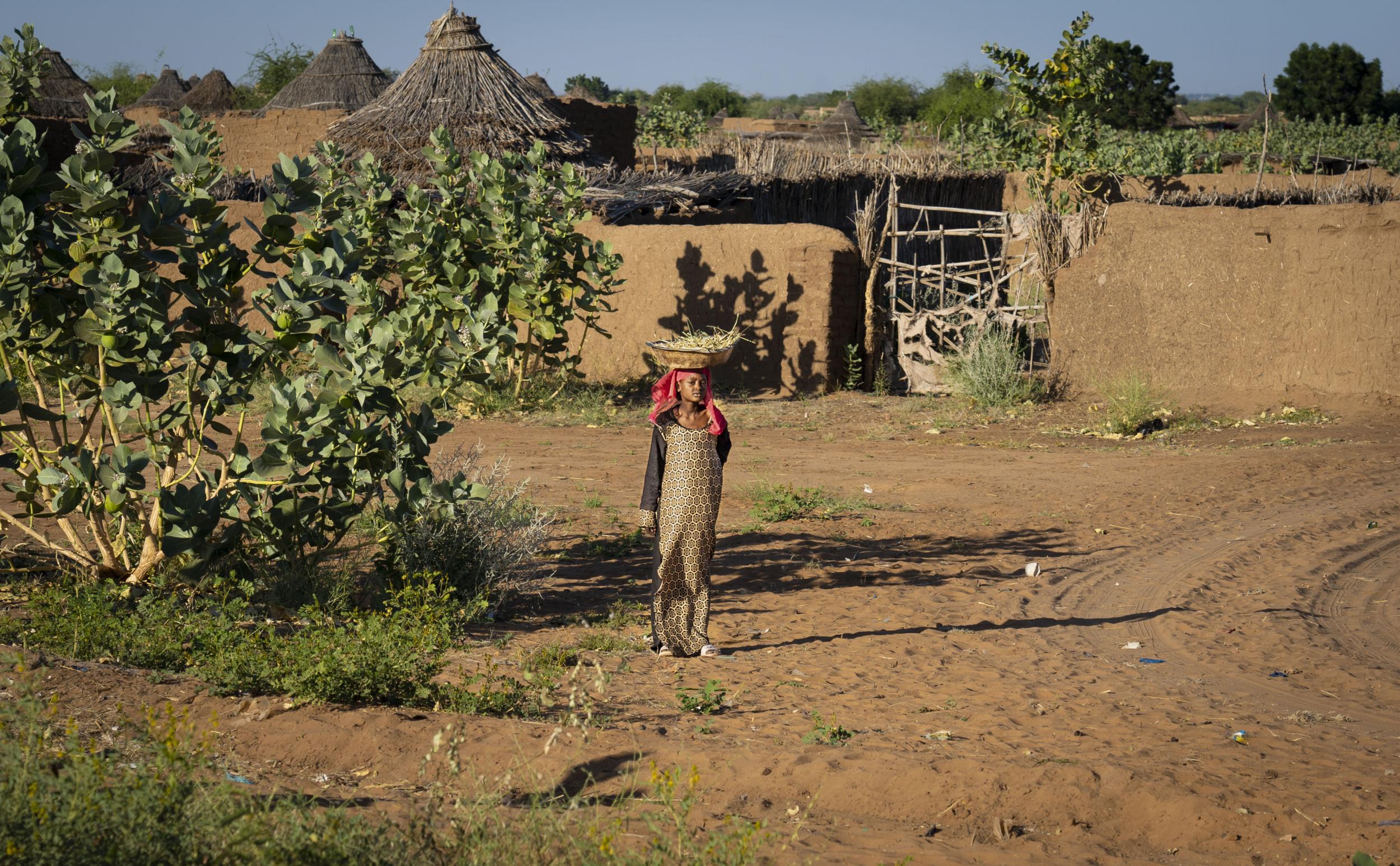
Over a dozen people, including tribal leaders, told The Independent about the regular raids on farming communities by Arab clansmen who they said have been armed by the state and still have the support of the security forces.
Residents claim that only one side of the conflict has been disarmed.
Across the rich-red savannah, dirt tracks are flanked by the gap-toothed remains of destroyed villages that until now have been inaccessible to foreign reporters.
In one called Gallab, the dome-shaped tents of Arab camel herders are interspersed among the decapitated mud-brick huts that once belonged to farmers of African origin who, since 2016, were displaced in waves.
The previous inhabitants, who now live in Zamzam camp, say they dare not visit their lands fearing attack.
“Even today they are expelling more people from the surrounding area, go and see for yourself. They destroyed all our houses and you can see their tents,” says Badradeen, a community leader.
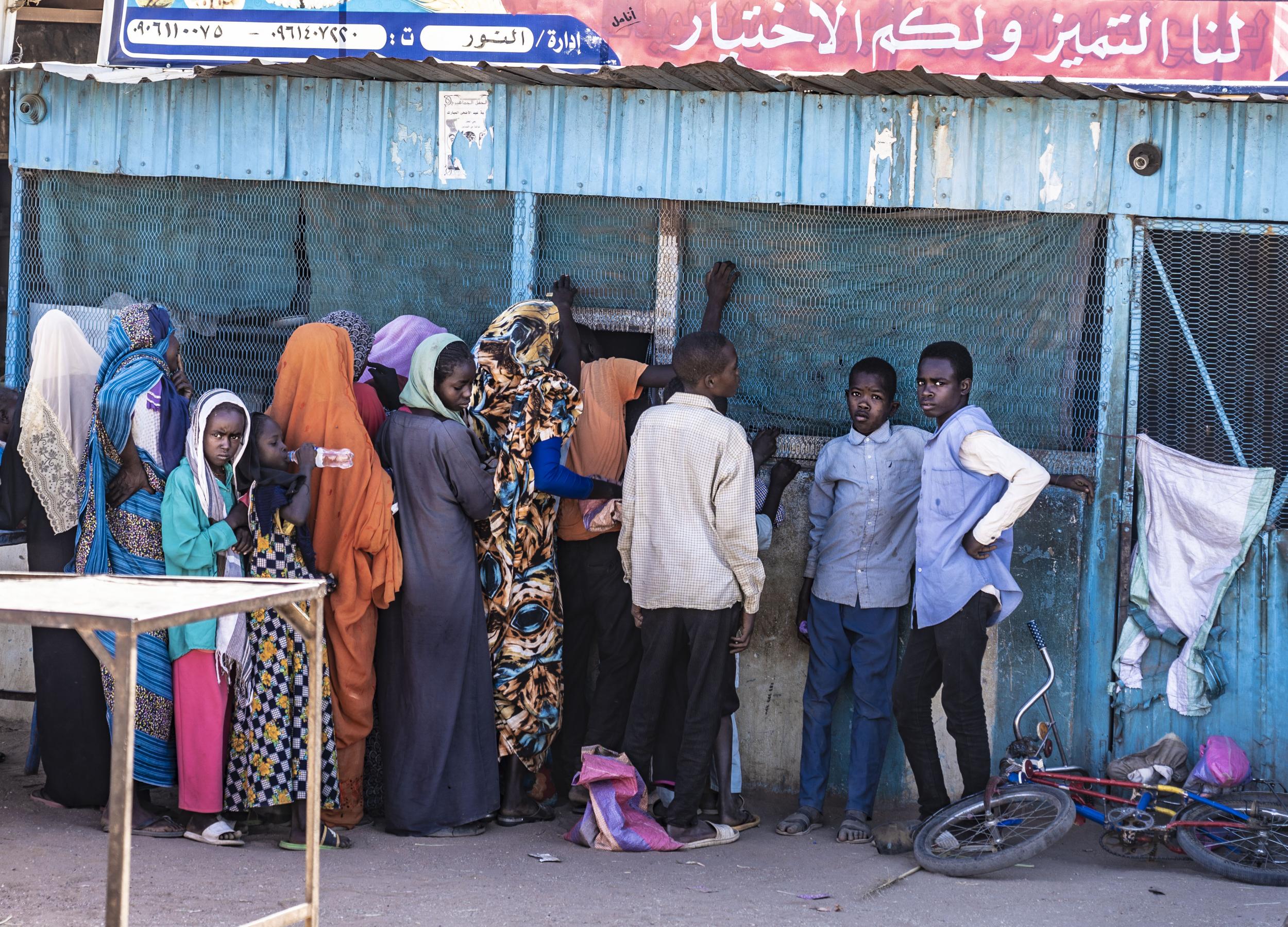
Five kilometres away in the Umm Gaydou farming village, the male inhabitants sit on the boundaries of their fields, waiting for a similar fate.
“We have information they will attack in the next 10 days because it is green here and they want to graze their animals,” says Ibrahim Abdul-Jafar, 49, speaking of the same herders.
He explains Umm Gaydou had already been raided in 2014 but they had managed to return and rebuild.
“The problem is no one around here has been disarmed. They still have weapons. We have none. Until we see the balance of power change, the situation will remain the same.”
No one around here has been disarmed. They still have weapons. We have none.
Abdul-Jafar says last year the local authorities organised a meeting between both sides, during which promises were made but not kept.
“We know that they will come. They went for Gallab, they will come for us. But we have all agreed we will not be displaced again. We will die here,” he adds.
The local authorities hold regular “reconciliation” meetings a half-hour drive away in Tabit, a town few have been able to reach before now.
In 2014, it was the site of a horrific violence: government forces systematically raped over 200 women and girls, according to a Human Rights Watch (HRW) investigation.
These days RSF soldiers, on pick-up trucks mounted with heavy machine guns, continue to guard the central marketplace that is bustling but on edge.
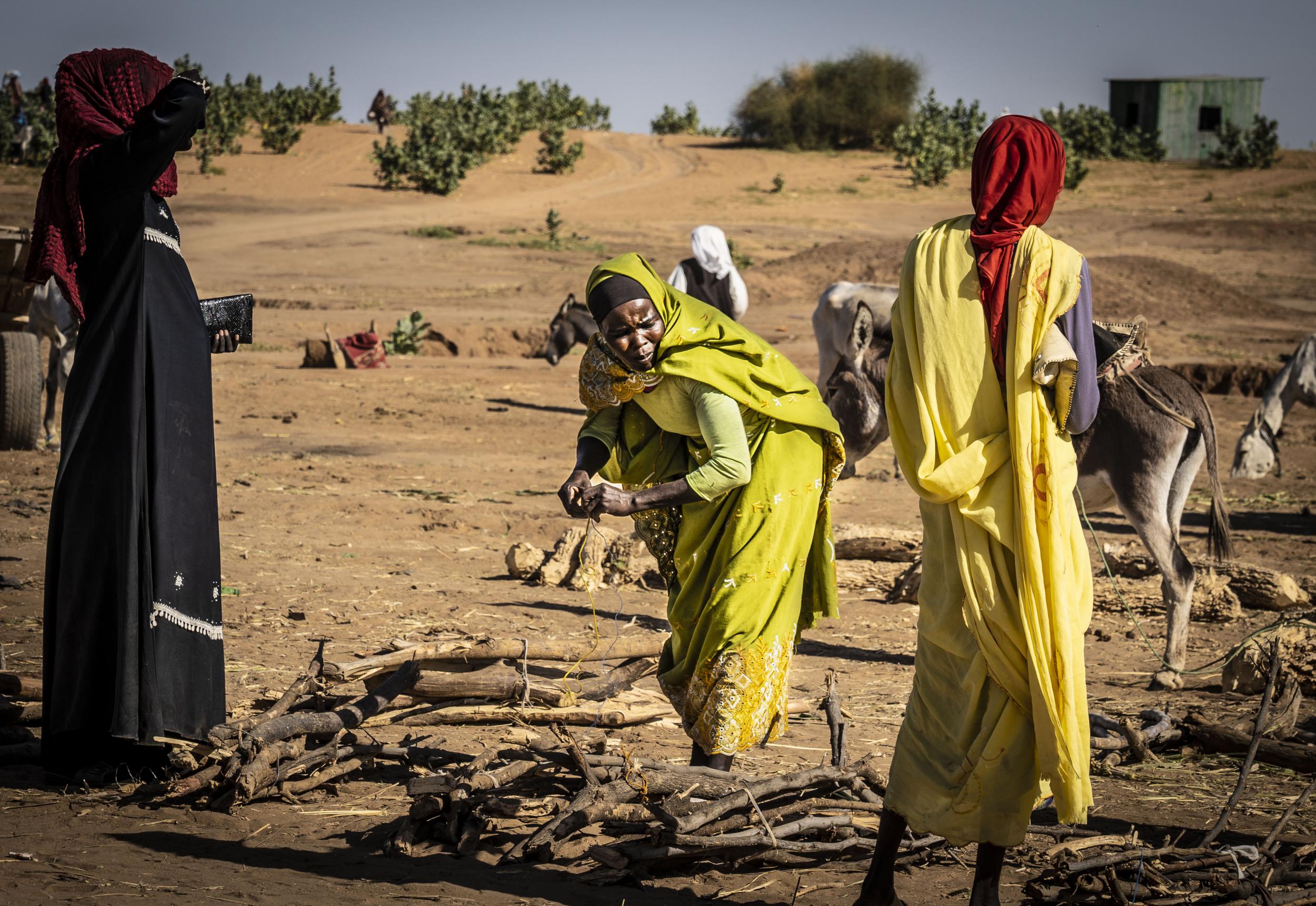
In the ramshackle main hall, regional official Fadel Radwan chairs a gathering of rival community leaders to discuss recent grievances over land grabs – ahead of the harvesting season – which is expected to be even more violent.
Within minutes the conversation descends into a fight so tense The Independent is advised to leave the town.
“You are stronger than us, you have the government behind you,” shouts Badradeen Osman, a community leader among Gallab’s displaced farmers.
Al-Sayyir Shugar, who represents the herders now living in Gallab, lashes back: “That land is ours, don’t listen to these claims, even the lands their [IDP] camps are built on are ours.”
Shugar, who hails from the same Arabic Rizeigat tribe as Hemedti, says he even had documents to prove it.
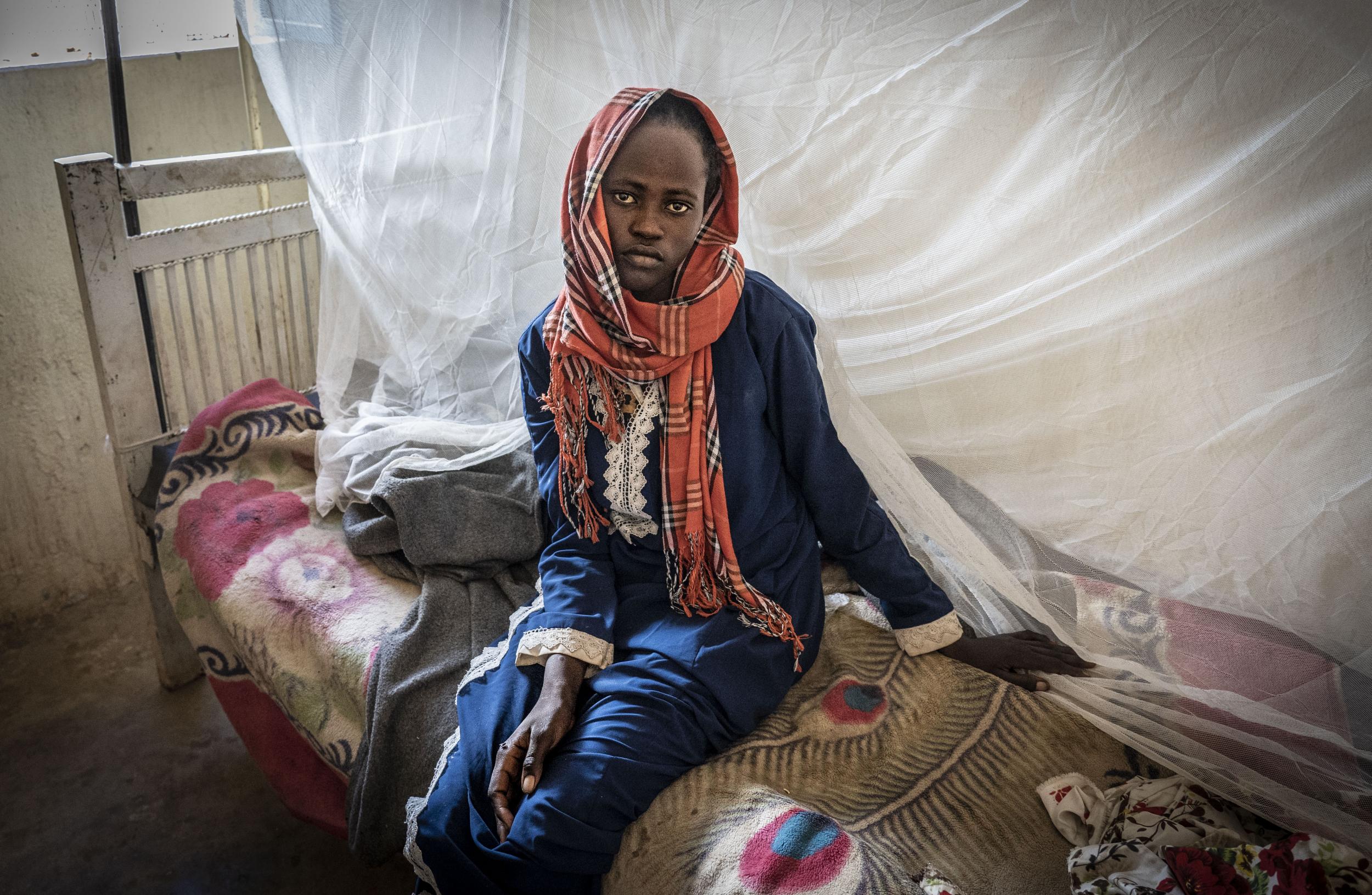
“I have papers from the former governor which showed they these were our lands. They were there when we signed them. These lands are ours.”
Back in the displacement camps, community leaders also warned of an impending health crisis as tens of thousands are going hungry.
With no work or chance of returning home, families cannot afford to feed themselves, they cannot cultivate their land and are not receiving food parcels from aid agencies, which are scaling down their operations.
A group from Abu Shuk IDP camp recently sent a list of demands to the new government saying that while the civilian leadership in Khartoum has changed, the remnants of the former regime – the deep state – is active in Darfur and using food to coerce them to go home.
“The authorities are still targeting the IDPs to force us to return home, because these camps are the most vivid reminder of the crimes they committed,” says Mohamed Osman, 47, who lives in Abu Shuk camp.
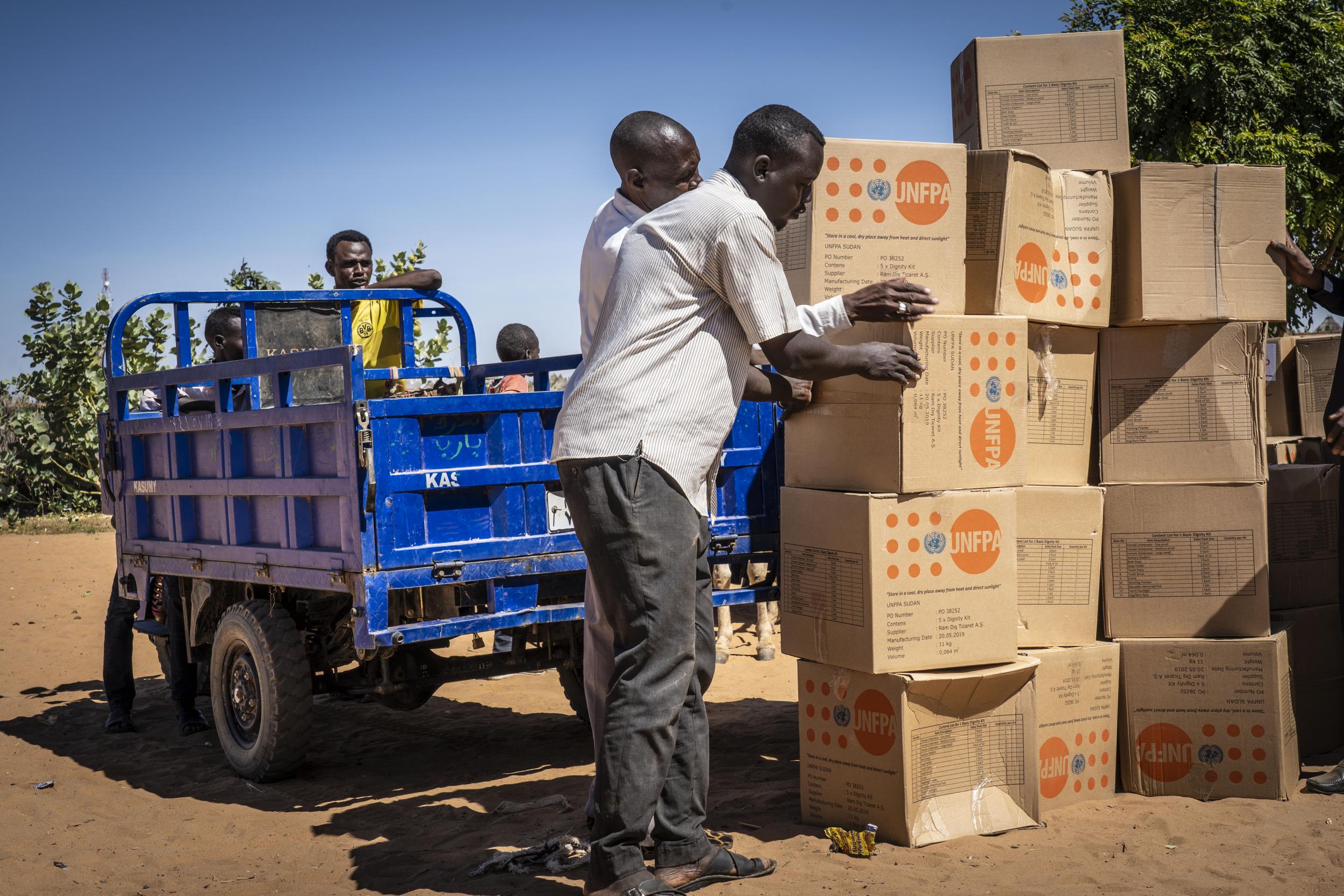
“Some families are on the cusp of famine. They want to starve us into leaving and going home despite the dangers, they are using food as a weapon against us”.
The EU warned last month that the number of people going hungry across Sudan had soared to 8.3 million, as the humanitarian crisis has worsened amid political instability and a crippling economic crisis.
Over a million are in emergency status four of the Integrated Phase Classification (IPC), which is just one step away from famine.
The EU’s humanitarian commission urged an immediate increase in aid, saying the internally displaced in places like Darfur were the hardest hit, with 90 per cent of IDPs and refugees unable to afford a meal a day.
North Darfur’s local health authorities last month reported an “unprecedented” and deadly surge in malaria and dengue fever, with several killed from the viruses.
And so, amid this misery, many in North Darfur say they have seen little change post-uprising.
Isolated from the rest of the country, few even realise that a civilian government has been appointed; led by Abdalla Hamdok, a respected economist who used to work for the UN.
Some families are on the cusp of famine. They want to starve us into leaving
“There is a new prime minister? Who is he? Is he an Arab? Does he know what we are going through?” asks Khadmalla, 50, who was displaced from her village in 2010 and lives in an adjacent hut to Fatima in Zamzam camp.
“We did hear someone called Hamdok from the government came here to visit,” Fatima adds, unwittingly referencing the prime minister’s trip to Zamzam in November.
“We don’t know who he is or why he visited,” she adds.
In another displacement camp Abu Shuk – home to over 20,000 people who were dispelled in various waves since 2003 – some of the residents were unaware there had even been a revolution.
“Bashir has been overthrown?” asks mother-of-six Hawa Abakr, 60, in shock.
“So where is Bashir now? And why has nothing changed?” she adds.
Hundreds of kilometres way in the capital, prime minister Hamdok struggles to answer that question.
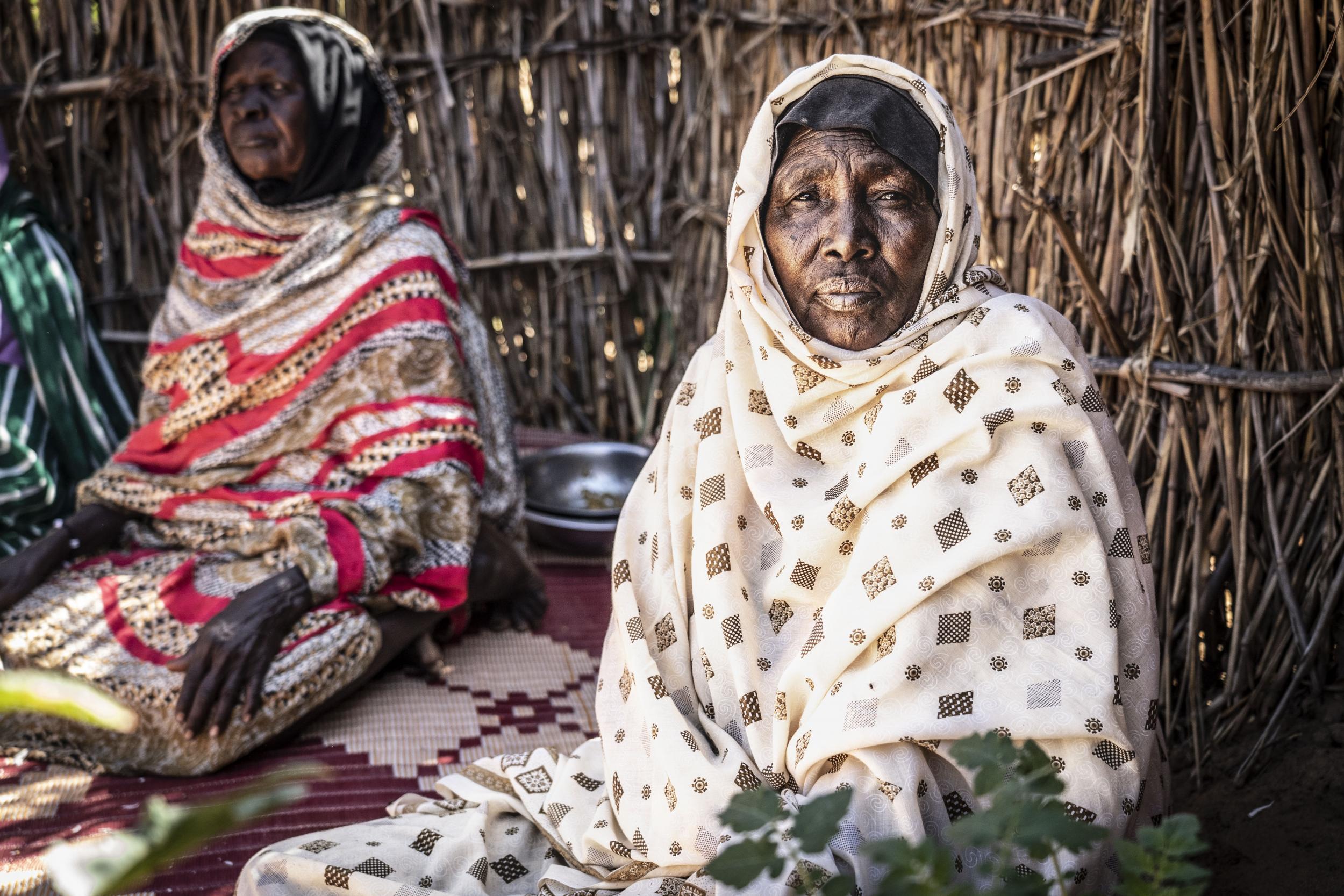
The premier visited both Zamzam and Abu Shuk last month, vowing to work on the demands handed to him by its inhabitants.
He says the authorities have already begun reforming the security apparatus but admitted it will take time to heal the deeply complex fault lines in Darfur.
“Do you think this RSF is eternally locked into that mood of killing people? It was an institution created to serve a certain purpose. That purpose has gone,” he says, from his office in the Council of Ministers building.
He distances the authorities from the recent eruption of violence in Darfur, framing it as historic rivalries between different ethnic and tribal groups, who were incited to hate each other by the former regime.
“I’m not saying it is easy. We have no hidden agenda, we will bring these communities together and justice will prevail.”
Across the capital, at his sprawling residence, Lt Gen Hamdan flatly denies his forces are responsible for any recent attacks saying the RSF has actually “stopped the violations”.
“We collected the weapons of Darfur. We arrested the outlaws and put them in prisons. We are now guarding Darfur,” he tells The Independent.
We collected the weapons of Darfur. We arrested the outlaws. The RSF is now guarding Darfur
But in Zamzam, Adam Osman, 50, a schoolteacher originally from a village next to Gallab, remains unconvinced.
“The government made promises when they came but hasn’t fulfilled them yet, the situation is worse,” he says, as we drive past his destroyed village.
“For us, it is like Bashir is still here. It is as if he wasn’t overthrown.”
Additional reporting by Mohammed Alamin
Read the first part in Bel Trew's A Nation on the Edge series, here: ‘Isis will be small fry’: Sudanese PM warns country will implode unless US sanctions are lifted
Join our commenting forum
Join thought-provoking conversations, follow other Independent readers and see their replies
Comments
Bookmark popover
Removed from bookmarks